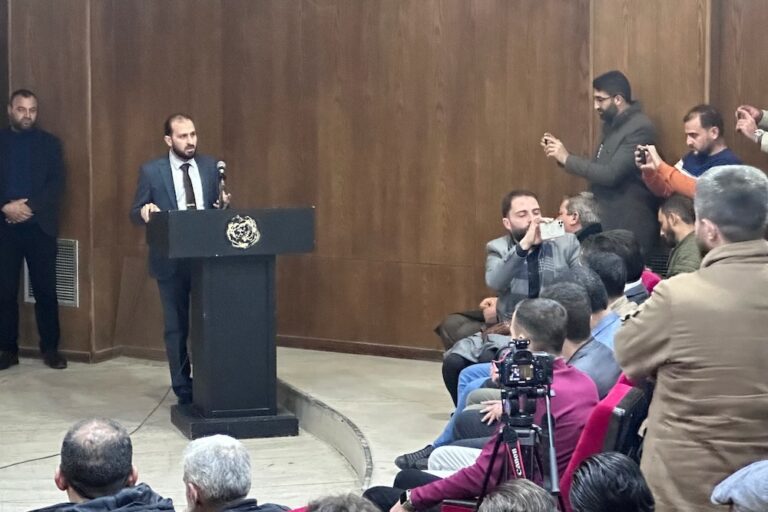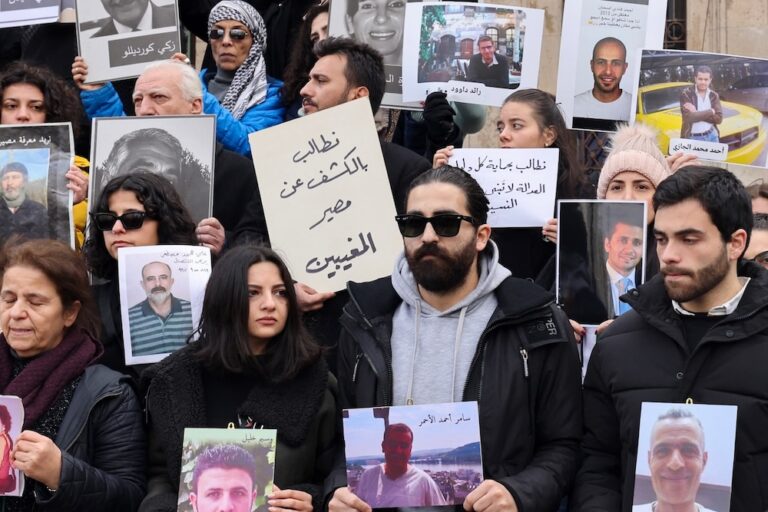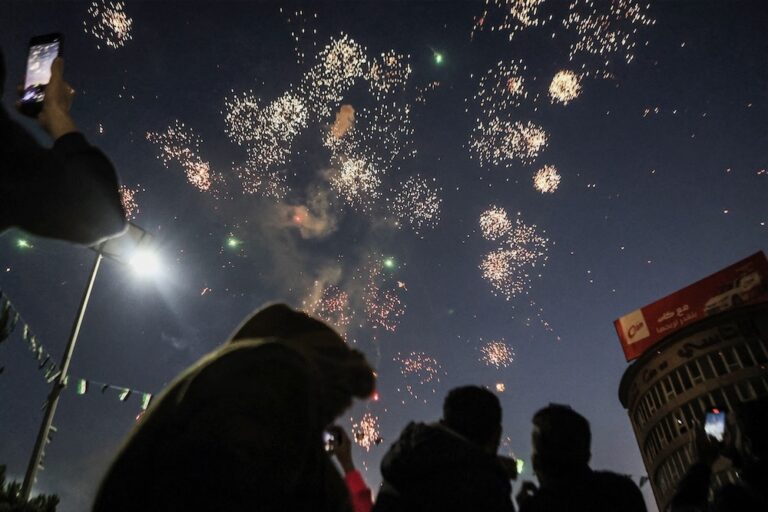(ARTICLE 19/IFEX) – The stifling censorship imposed by Syria’s authoritarian government is adding to the political and economic dangers already facing the country, according to a report published released by ARTICLE 19. “Walls of Silence: Media and Censorship in Syria” is the latest in a series of reports on media law and practice in the […]
(ARTICLE 19/IFEX) – The stifling censorship imposed by Syria’s authoritarian
government is adding to the political and economic dangers already facing
the country, according to a report published released by ARTICLE 19.
“Walls of Silence: Media and Censorship in Syria” is the latest in a series
of reports on media law and practice in the Middle East to be published by
ARTICLE 19. It examines the effect of Syria’s State of Emergency Law, Penal
Code and other laws on the local print and broadcast media. Taking account
of freedom of expression guarantees provided under the Syrian Constitution
and under international law, the report recommends a number of urgent
reforms.
Launching the report, Frances D’Souza, Executive Director of ARTICLE 19,
said:
“These practices are anachronistic in a world commemorating the fiftieth
anniversary of the Universal Declaration of Human Rights.
“While ARTICLE 19 welcomes Syria’s action in releasing many political
prisoners in early June, there must be a full overhaul of the legal system
to end the criminalisation of free expression, and further releases of
people imprisoned for exercising their right to freedom of expression,” she
added.
The ARTICLE 19 study shows that journalists inside and outside Syria are
barred by structural and regulatory constraints from reporting on a host of
crucial issues. These include the handling of peace talks with Israel and
the mammoth task of restructuring the economy in readiness for the free
trade area which the European Union plans to create with southern
Mediterranean countries by the year 2010.
The report recounts how the various “walls of silence” are erected, through
state monopoly of the media, a network of notorious intelligence agencies
and laws that make it a crime to “disturb public confidence” or to “oppose
the aims of the revolution”.
These controls are reinforced by extra-judicial repression, including
detention without trial, ill-treatment in custody and deprivation of civil
rights. Political detainees automatically lose their civil rights for a
period of ten years and are generally forced to renounce all political
activity before they are released.
An overhaul of the legal system would include immediate repeal of the State
of Emergency Law. Having been in force since 1962 this cannot, by any
reasonable definition, be a genuine emergency law.
Moreover, the report explains, this particular law suffers from a procedural
defect in that its own provisions have not been properly applied. This in
turn calls into question its legitimacy.
The report also notes contradictions in media practice in Syria, where
foreign satellite television is readily available but foreign newspapers are
not. Although the government warned against the installation of satellite
dishes in 1994, it has since turned a blind eye as dishes have spread
rapidly through the country. This is due to the fact that most of the
Arabic-language satellite channels available in Syria are backed by Arab
governments with similar interests in content restrictions. Because of
Syria’s political control over Lebanon, the private Lebanese channels are
prevented from posing any threat.
ARTICLE 19 points out that Syria, having ratified the International Covenant
on Civil and Political Rights (ICCPR) in 1969, is legally bound to abide by
it the treaty entered into force in March 1976). Under Article 19 of the
ICCPR, the government is obliged under international law to guarantee its
citizens the right to hold opinions without interference and to seek,
receive and impart information and ideas through the medium of their choice.
Syria, along with 11 other Mediterranean countries also has a commitment to
respect fundamental human rights and freedoms under the Barcelona
Declaration, signed with the European Union in 1995.


